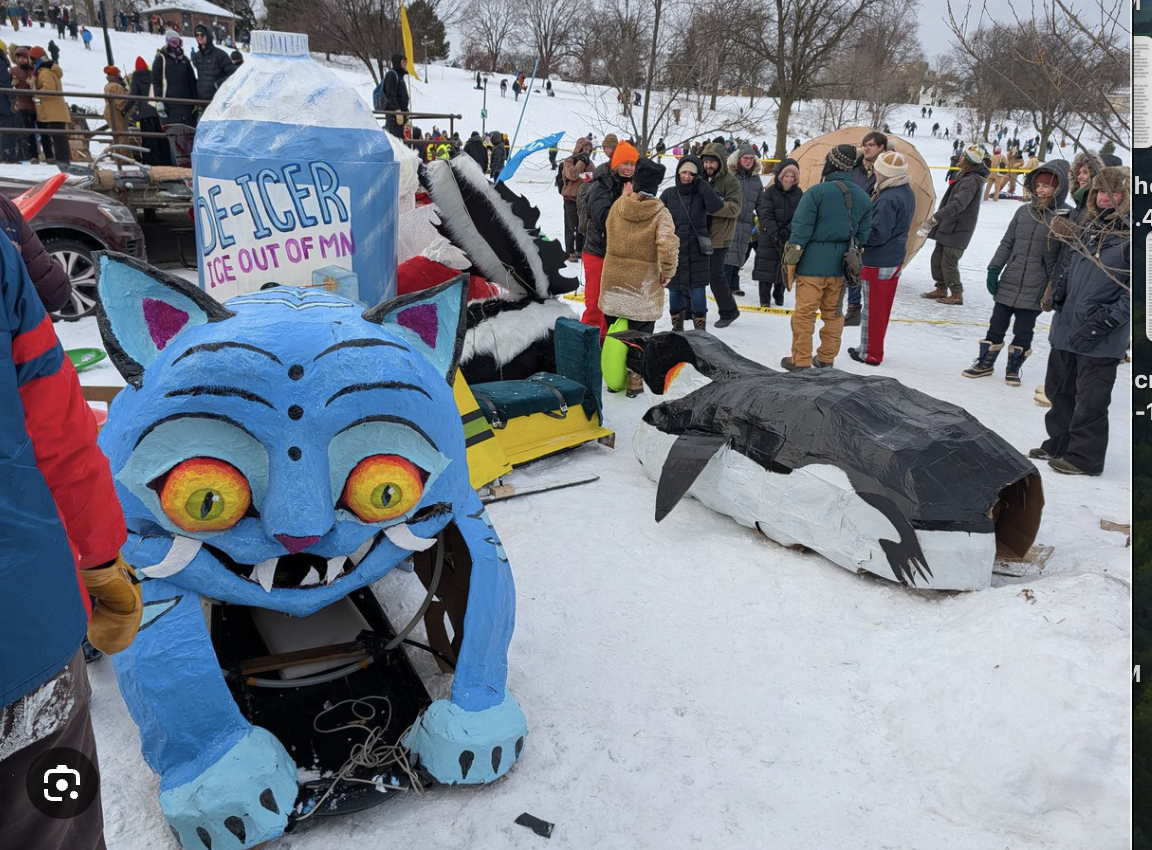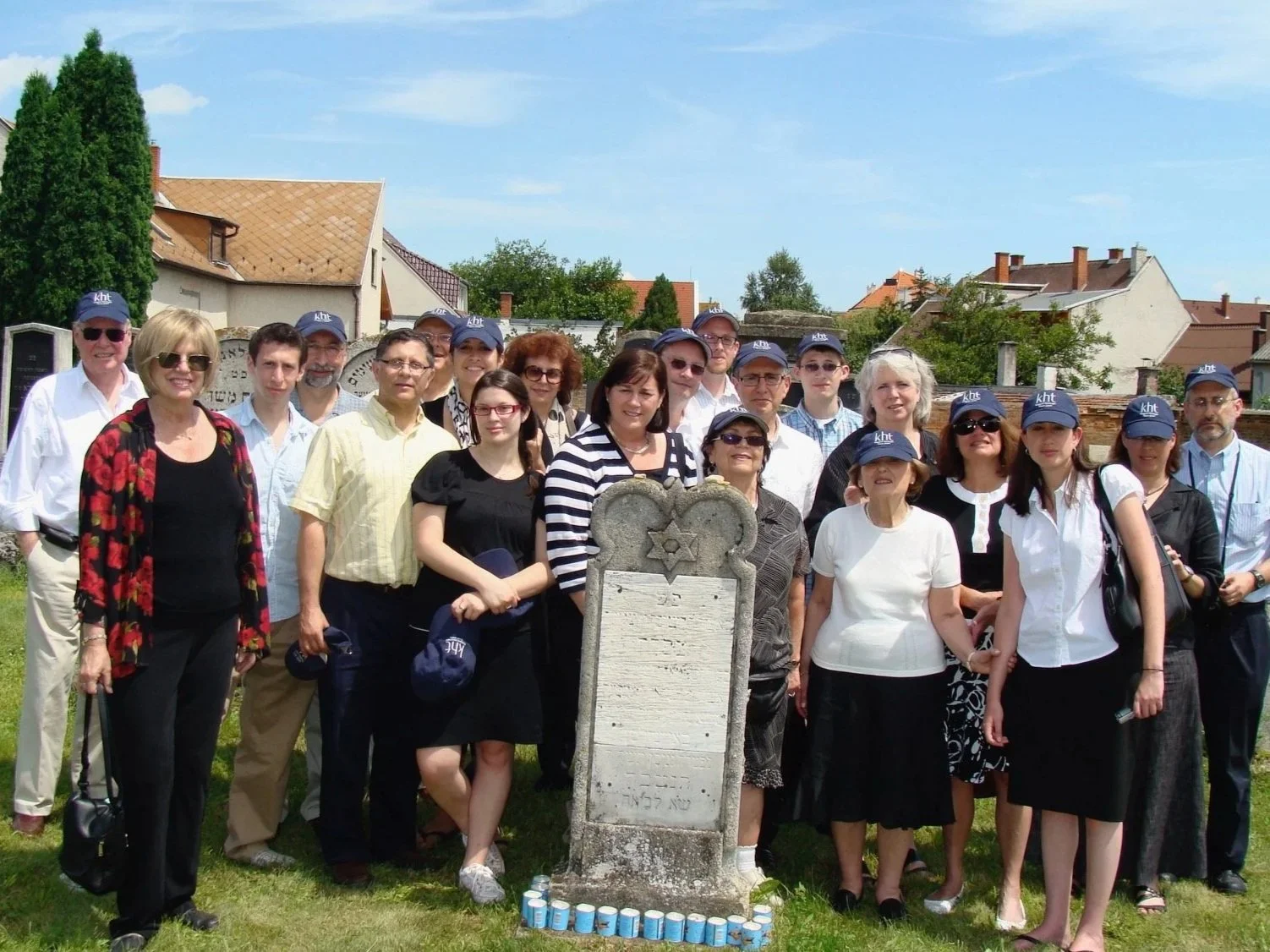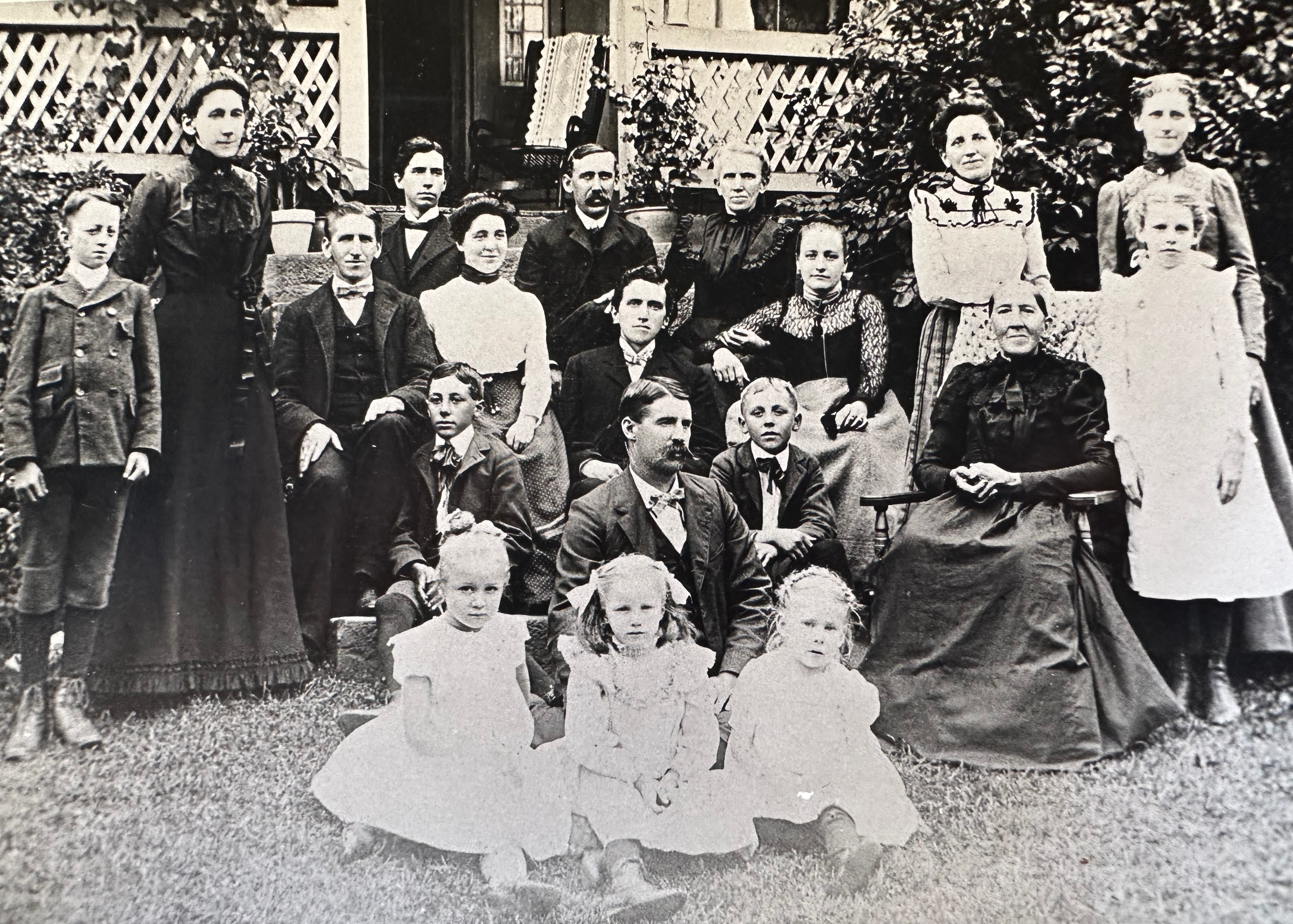Minnesota Resolve
Scenes from the annual Art Sled Rally in Powderhorn Park this week…flourishing creativity in Minneapolis.
We are not native Minnesotans as we’ve only lived here 35 years or so. And yet, we have learned a few things about the people who call this North Coast state “home”.
We’re somewhat tough and gritty with a big base of Scandinavians and Germans. We relish all four seasons and when temperatures move from single to double digits, we find it downright balmy and time for outdoor sports.
When we arrived in 1990, the population was 94% white and today it’s 77.5% white. Still mostly pale people up here. And thank heavens for the immigrants. The turkey and meat producers, large dairies, Hormel all are fueled by the new arrivals to Minnesota.
And that shift has been incredibly important for our culinary scene. When we first arrived, there were steak houses and Perkins. Today, we have world class Asian, Indian, Hmong, Somali, and Spanish restaurants. After all, who wouldn’t prefer fish tacos to lutefisk?
What is still solidly in place are the core values of this state - a strong belief in hard work, a dedication to fairness and kindness, and a strong sense of community. We’re proud of our cultural institutions and icons - our theaters and music scene, our world class art museums - and Dylan and Prince.
What we’re experiencing right now - at the end of the second week of the Siege of Minneapolis - is a deep resolve taking hold. Neighborhoods are setting up Signal groups. We’re delivering food to neighbors afraid to leave their homes. We’re gathering around restaurants and day care centers to provide cover for workers to safely enter their jobs. We’re providing rides home for those with any melanin in their skin who are afraid to drive right now.
And yes - we’re protesting the outrageous behaviors of ICE in as many creative ways as we can. There are singalongs with band instruments. Artists are getting engaged, and there are puppets and kites. And yes, people who gather are getting tear gassed simply for being there, which leads to scuffles and shoving - and that only builds more resolve.
Pay attention to what’s happening here - as this administration’s antipathy to this state won’t stay focused for long. Remember - this is a big brutal distraction from massive malfeasance taking place within institutions we used to rely on - financial, regulatory, and judicial…not to mention the Epstein Files…






